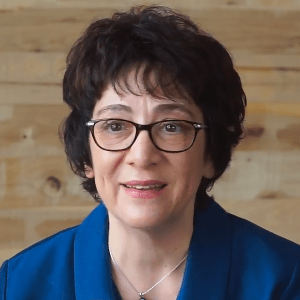The Robert L. Kane Memorial Lecture
“A physician, scholar, and mentor who used his formidable intellect, wit, determination, and kindness to ease suffering and mend the world. He left an imprint” -from Dr. Robert L. Kane’s epitaph.
The purpose of the Robert L. Kane Memorial Lecture is to honor the legacy of its namesake, the first holder of the endowed Long-Term Care in Aging at the University of Minnesota (1990-2017). A scholarly pioneer in chronic disease care, long-term care innovation, and geriatric health services research, Dr. Kane’s science has greatly advanced our understanding of long-term care. Dr. Kane mentored numerous students, junior faculty researchers, and professional colleagues who have had distinguished careers in their own respective disciplines. This prestigious Lectureship honors scholars of a similar reputation as Dr. Kane’s and aligns innovative science in long-term care with the needs and experiences of practitioners, providers, families, and older persons.
A scholar of national or international reputation in long-term care or a related area will serve as the Robert L. Kane Memorial Lecturer on an annual basis. The Lecturer will:
- Provide a scholarly presentation to the University community on a topic of scientific relevance to long-term care (by definition including both post-acute care and long term services and supports);
- Take part in a series of small-group or individual meetings with University faculty, staff, and students to provide consultation and identify potential collaborations;
- Engage with University of Minnesota partners to further benefit providers, policymakers, families, and older persons themselves.
Consider donating! Donations to the Robert L. Kane Memorial Lecture will help support the investment we are making to ensure that the annual Lecture will continue for the foreseeable future to continue the tradition of scholarly, practice, and policy excellence that Dr. Kane insisted upon.
Green House Nursing Homes: More Than a Promising Innovation
May 23, 2024 | Hybrid Format | Sheryl Zimmerman, PhD
 Dr. Zimmerman is a Distinguished Professor of Social Work and Public Health and co-director of the Program on Aging, Chronic Illness, and Long-Term Care, Cecil G. Sheps Center for Health Services Research, at the University of North Carolina at Chapel Hill; she also is Executive Director of the national Center for Excellence in Assisted Living. Dr. Zimmerman is internationally recognized as a leader in long-term care research and pragmatic and clinical trials. She is emeritus Editor-In-Chief and Senior Associate Editor of JAMDA. In 1996, Zimmerman founded the Collaborative Studies of Long-Term Care, the largest ongoing research consortium of almost 1,500 nursing homes and assisted living communities that have participated in more than 70 projects with continuous funding.
Dr. Zimmerman is a Distinguished Professor of Social Work and Public Health and co-director of the Program on Aging, Chronic Illness, and Long-Term Care, Cecil G. Sheps Center for Health Services Research, at the University of North Carolina at Chapel Hill; she also is Executive Director of the national Center for Excellence in Assisted Living. Dr. Zimmerman is internationally recognized as a leader in long-term care research and pragmatic and clinical trials. She is emeritus Editor-In-Chief and Senior Associate Editor of JAMDA. In 1996, Zimmerman founded the Collaborative Studies of Long-Term Care, the largest ongoing research consortium of almost 1,500 nursing homes and assisted living communities that have participated in more than 70 projects with continuous funding.
In 1975, the U.S. Senate Special Committee on Aging called out the “dread and despair” associated with nursing home care. In 2022, the National Academies of Sciences, Engineering and Medicine referred to nursing homes as an “invisible social ill,” leaving one to wonder whether progress had been made in the ensuing half century. Progress had indeed been made, a notable example being Green House small-scale nursing homes. These nursing homes embrace three core values: meaningful life, empowered staff, and real home, and today, there are 401 Green House homes across 35 states and 8 in South Australia. This presentation, by Dr. Sheryl Zimmerman, Ms. Susan Ryan (CEO of the Center for Innovation, the parent organization of the Green House Project and Pioneer Network), and Ms. Melissa Schneider (COO of Episcopal Homes, a local Minnesota Green House home), will describe Green House homes; research related to care and outcomes; and the future of Green House homes in the U.S. and abroad.
Thank you sponsors:
![]()



Continuing Education Information:
In support of improving patient care, this activity is planned and implemented by The National Center for Interprofessional Practice and Education Office of Interprofessional Continuing Professional Development (OICPD). The National Center OICPD is jointly accredited by the Accreditation Council for Continuing Medical Education (ACCME), the Accreditation Council for Pharmacy Education (ACPE), and the American Nurses Credentialing Center (ANCC) to provide continuing education for the healthcare team.
As a Jointly Accredited Provider, the National Center OICPD is approved to offer social work continuing education by the Association of Social Work Boards (ASWB) Approved Continuing Education (ACE) program. Organizations, not individual courses, are approved under this program. State and provincial regulatory boards have the final authority to determine whether an individual course may be accepted for continuing education credit. The National Center OICPD maintains responsibility for this course. Social workers completing this course receive continuing education credits.
This activity was planned by and for the healthcare team, and learners who request it will receive Interprofessional Continuing Education (IPCE) credit for learning and change.


Supporting Care Partners in Real-World Care Delivery
May 9th, 2023 | Hybrid Format | Jennifer Wolff, PhD
 Dr. Wolff is the Eugene and Mildred Lipitz Professor in the Department of Health Policy and Management and Director of the Roger C. Lipitz Center for Integrated Health Care at the Johns Hopkins Bloomberg School of Public Health and holds a joint appointment in the Division of Geriatric Medicine and Gerontology at the Johns Hopkins University School of Medicine. Dr. Wolff’s research focuses on the care of persons with complex health needs and disabilities and applied studies and initiatives directed at better supporting them and their family caregivers within systems of care delivery.
Dr. Wolff is the Eugene and Mildred Lipitz Professor in the Department of Health Policy and Management and Director of the Roger C. Lipitz Center for Integrated Health Care at the Johns Hopkins Bloomberg School of Public Health and holds a joint appointment in the Division of Geriatric Medicine and Gerontology at the Johns Hopkins University School of Medicine. Dr. Wolff’s research focuses on the care of persons with complex health needs and disabilities and applied studies and initiatives directed at better supporting them and their family caregivers within systems of care delivery.
Care partners have a foundational role when assisting persons with complex health needs and disabilities, including throughout the trajectory of dementia care. Care partners often serve as a critical source of information about a patient’s health history, coordinate treatments, facilitate care planning, and participate in routine and high-stakes decision-making. The competence and capacity of care partners affect the care quality, outcomes, and well-being of both the person they assist and themselves. Support of care partners has been identified as a key opportunity for achieving savings in care delivery redesign. This talk will summarize challenges and opportunities in the science and policy of care partner support and discusses strategies to sustain innovation and improvement in care, with a particular focus on consumer-oriented health information technologies.
Social Justice, Clinical Research and Dementia Care in Multicultural America
 May 13th, 2022 | 2:30 – 4:00 PM CST | Virtual Via Zoom
May 13th, 2022 | 2:30 – 4:00 PM CST | Virtual Via Zoom
Keynote Speaker: Peggye Dilworth-Anderson, PhD
Dr. Dilworth-Anderson is a professor of Health Policy & Management at the Gillings School of Global Public Health, University of North Carolina–Chapel Hill. Her research focus is on health disparities and Alzheimer’s disease with an emphasis on building knowledge for the scientific and lay community to inform conducting culturally relevant research and disseminating information about Alzheimer’s disease and related disorders in medically underserved diverse populations.
This presentation provides a framework for integrating social justice, clinical research on dementia in America, and the care that is provided to diverse groups of older people and their families in America.
Mainstreaming Long Term Care
May 6th, 2021 | 3:00 – 4:30 PM CST | Virtual Via Zoom
Keynote Speaker: Debra Saliba, MD, MPH, AGSF
Debra Saliba, MD, MPH, AGSF holds the Anna & Harry Borun Endowed Chair in Geriatrics at the UCLA David Geffen School of Medicine where she directs the UCLA Borun Center for Gerontological Research. She is also a senior natural scientist at RAND and a researcher at the Greater Los Angeles VA.
Despite the large and increasing number of adults who are vulnerable to functional decline, the need for long term care has been excluded from traditional conceptions of community health care. Moreover, many care settings do not employ principles of geriatrics and gerontology. Health services research can help to remedy these shortcomings by using scholarship to identify and encourage better and more targeted care across the care continuum for these populations. Dr. Saliba will provide examples of research that has used data and science to effect such changes in long-term care policy, programs, and clinical practice.
The Science of Changing Health Systems Behavior
April 11th, 2019 | Mayo Memorial Auditorium, The University of Minnesota – Twin Cities
Keynote Speaker: Vincent Mor, Ph.D.
Florence Pirce Grant University Professor, Professor of Health Services, Policy, and Practice, Brown University
Timestamps for video:
- Dr. Gaugler’s initial comments and reflections on Dr. Kane (13:00 to 27:29); Delivered at the Robert L. Kane Memorial Lecture, April 11th, 2019, at the University of Minnesota by Joseph E. Gaugler, Ph.D., Robert L. Kane Endowed Chair in Long-Term Care and Aging and Professor, Division of Health Policy and Management, School of Public Health, University of Minnesota.
- Introduction of Dr. Vincent Mor and the 2019 Robert L. Kane Memorial Lecture, The Science of Changing Health Systems Behavior with a question and answer session (27:30-1:23:45);
- Discussion panel with Vincent Mor, Ph.D.; Peter Huckfeldt, Ph.D.; Teresa McCarthy, MD; Dawn Simonson, MPA; and Timothy Beebe, Ph.D.: (1:24:25-to conclusion)
